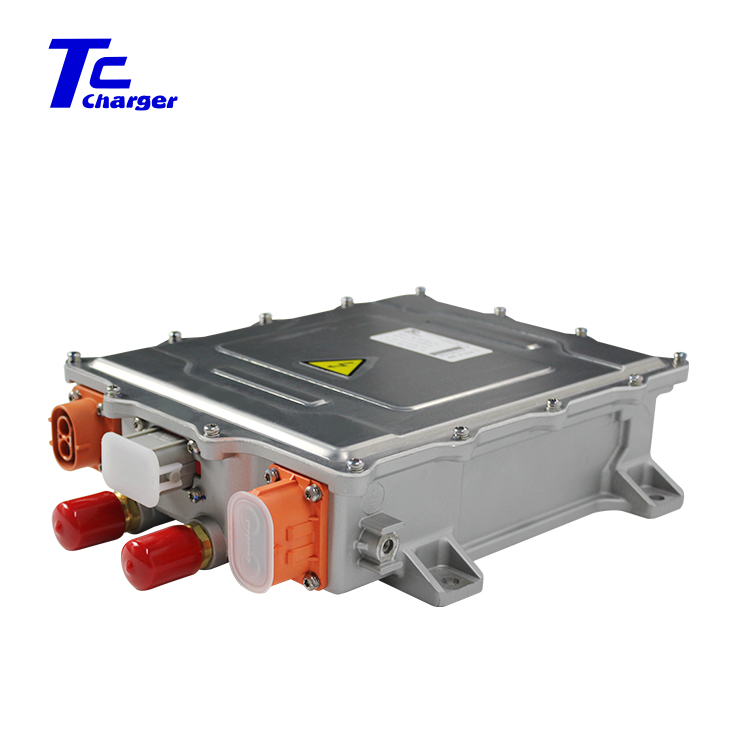The Economic Benefits of On-Board Chargers in Electric Vehicles
Jul 29,2024 | TCcharger

As electric vehicles (EVs) continue to make strides in the automotive market, the economic benefits of their components become a critical point of discussion. Among these components, the on-board charger (OBC) plays a significant role not just in the operational efficiency of EVs, but also in generating economic advantages for owners and the broader community. In this blog, we'll delve into how on-board chargers contribute to cost savings and overall economic value.
Understanding On-Board Chargers
An on-board charger is an integrated device within an electric vehicle that converts alternating current (AC) from external power sources into direct current (DC) to charge the EV's battery. This conversion is essential because EV batteries store energy in DC form, making the on-board charger a pivotal component for managing the energy needs of your vehicle.
Initial Cost and Infrastructure Savings
-
Home Charging Capabilities:
With an on-board charger, you can use existing AC outlets at home to charge your EV, eliminating the need for expensive and specialized DC fast-charging infrastructure. This can significantly reduce the initial setup costs for new EV owners. -
Use of Existing Power Infrastructure:
Since on-board chargers convert AC to DC, they enable the use of existing power infrastructure. Public charging stations with AC power sources are generally cheaper and more widespread, reducing the need for costly upgrades to accommodate DC fast chargers.
Operational Cost Savings
-
Lower Fuel Costs:
Charging an EV typically costs less than refueling a conventional internal combustion engine (ICE) vehicle. With an on-board charger, you can take advantage of cheaper, often renewable electricity to power your car, leading to substantial savings over time. -
Reduced Maintenance Costs:
On-board chargers contribute to the overall efficiency and health of the EV's battery by managing the charging process more effectively. Properly charging the battery optimally extends its lifespan, thereby reducing long-term maintenance costs and the need for early replacements.
Economic Incentives and Subsidies
-
Government Incentives:
Many governments offer various incentives for EV owners, such as tax credits, rebates, and reduced registration fees. Having an on-board charger can qualify you for these benefits, directly translating to economic savings. -
Renewable Energy Integration:
On-board chargers can often be integrated with renewable energy sources like solar or wind power. Utilizing renewable energy can provide additional economic benefits, such as lower energy bills and eligibility for green energy subsidies and credits.
Improved Vehicle Resale Value
As the EV market matures, vehicles equipped with efficient and reliable on-board chargers are likely to have higher resale values. Prospective buyers will value the flexibility and cost savings associated with an EV that can be charged using standard AC outlets, making it a more attractive option in the used car market.
Contribution to a Greener Economy
-
Reduced Carbon Footprint:
By enabling the use of renewable energy sources for charging, on-board chargers help reduce the overall carbon footprint of electric vehicles. This contributes to broader economic benefits by promoting sustainable practices and reducing the environmental impact, which can have long-term economic advantages for society. -
Energy Management:
On-board chargers can be integrated with smart grid systems, enabling more efficient energy use and distribution. This can help stabilize and optimize the electricity grid, potentially lowering the overall cost of energy for all consumers.
Conclusion
On-board chargers are more than just a technical necessity for electric vehicles; they are key to unlocking a host of economic benefits for both individual owners and society at large. By reducing initial and operational costs, taking advantage of economic incentives, and contributing to a greener economy, on-board chargers affirm their role in making electric vehicles a cost-effective and sustainable choice.
As we continue to shift towards electric mobility, understanding the economic impact of components like on-board chargers will be essential. The integration of these systems not only makes driving more affordable but also supports the global effort to build a sustainable and economically viable future.
Drive smart. Save more. Go green.



